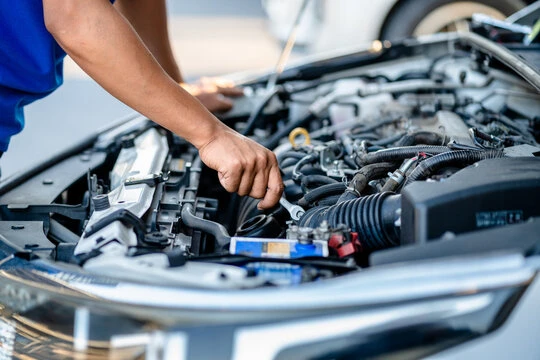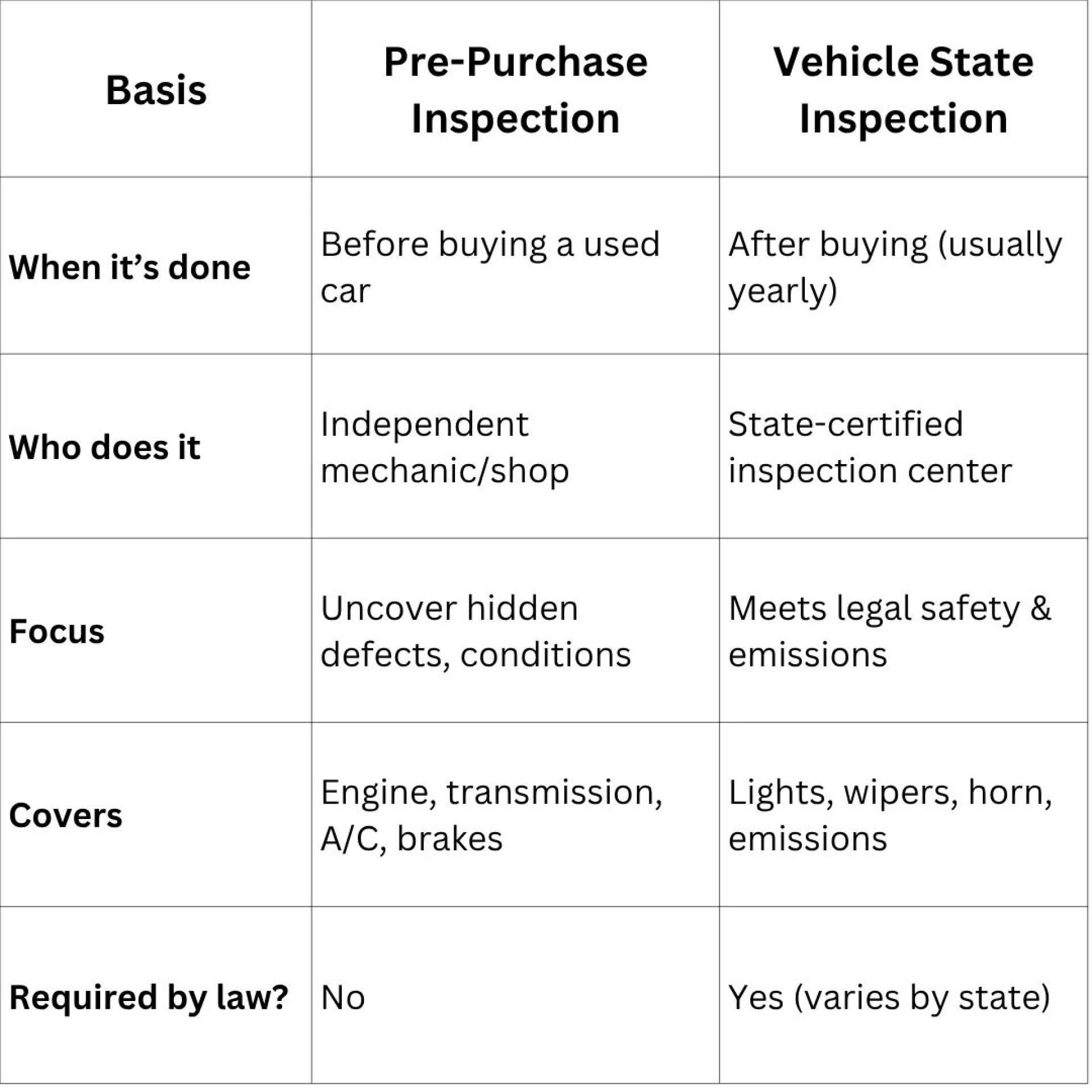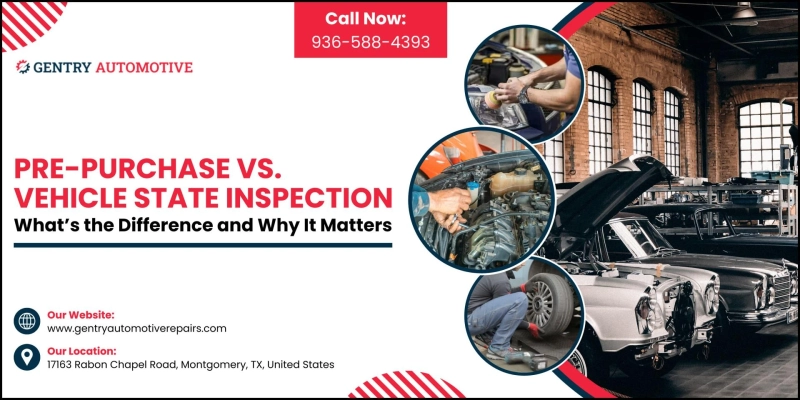They might sound like the same thing, but they’re absolutely not. And if you confuse one for the other, you might end up buying a car that’s either a safety hazard or a total loss of your money.
In this blog, we’ll break it all down for you in simple terms: what they check, why they matter, and why getting just one is never enough. Keep on reading to find out more.
What Is a Pre-Purchase Inspection (PPI)?
A Pre Purchase Inspection, often called a Pre Purchase Car Inspection, is exactly what it sounds like: A full vehicle check-up done before you buy a used car. The goal behind this is to find any hidden issues that the seller “forgot” to mention.
What Does a Pre-Purchase Inspection Cover?
It is like a full-body check-up for your car. A trained mechanic in this field will check things like:
- Engine health and performance
- Brake condition
- Transmission issues
- Suspension and steering
- Fluid leaks
- Battery life
- Tires and alignment
- Body/frame damage or signs of accidents
- Interior electronics (lights, windows, A/C, etc.)
Basically, everything from bumper to bumper, including checking if that “newly-filtered A/C” actually works. If it doesn’t, you may need Auto AC Repair right off the bat. You need it because sellers often clean up a car to look “good on the outside.” But that doesn’t mean the engine isn’t dying, or the brakes aren’t failing. A pre-purchase inspection uncovers issues before they become your problem.
What Is a Vehicle State Inspection?
Now, this is something different. This inspection is a government-mandated test to make sure your car meets minimum safety and environmental standards. Depending on your state, it could be required every year or every two years, though that’s starting to change. For example, in Texas, most non-commercial vehicles will no longer need a state inspection starting from 2025, unless they are registered in specific counties or fall under commercial use.

What Does a State Inspection Include?
Unlike a pre-purchase car Inspection, this one isn’t about finding hidden flaws. It’s about checking if your car is legally allowed to be on the road. It typically checks:
- Emissions and exhaust system
- Headlights, brake lights, and turn signals
- Horn and windshield wipers
- Brake system efficiency
- Steering and suspension basics
- Tire condition (sometimes)
- VIN verification
You need to note that vehicle state inspections do not check your engine health, transmission, or any non-essential parts. So, even if your car is not required to have one anymore, it does not mean it’s problem-free.
Pre-Purchase vs. Vehicle State Inspection: Quick Comparison

Why One Doesn’t Replace the Other
The truth is that you need both. They serve totally different purposes. A vehicle state inspection doesn’t care if your A/C is dead. It just checks if your car isn’t spewing black smoke or missing brake lights.
On the other hand, a vehicle pre-purchase inspection gives you real, honest insight into whether the car is a good deal or just a waste of money.
So, if you’re buying a car that passes a state inspection but hasn’t had a proper pre-purchase inspection, you might be stuck with:
- Engine repairs that are worth more than the car
- Transmission issues that show up a few days after the deal
- Worn-out tires or brakes that need immediate replacement
How to Get a Pre-Purchase Inspection Done
Easy. Here’s what to do:
- Find a trusted local mechanic or inspection service. If you are in Montgomery, Texas, Gentry Automotive is a great option.
- Schedule the inspection. It can be done at a shop, or sometimes the mechanic can go to the car’s location.
- Get a written report. Read it and ask questions.
- Negotiate the price or walk away if big issues are found.
And yes, ask them to check the AC system thoroughly too. A hidden Auto AC Repair issue might not be a dealbreaker, but it is a bargaining chip.
Tips to Pass a Vehicle State Inspection After Buying
Once you’ve bought the car, don’t panic. Make sure you:
- Check your lights, tires, wipers, and brakes ahead of time.
- Fix any minor issues
- Look up your state’s specific rules. Some test emissions, others don’t.
- Go to a certified inspection station only.
- If you fail, don’t panic. You’ll usually get a list of what needs to be fixed and a window of time to get it done
How to Avoid Getting Scammed on a Used Car Purchase
Used cars are tricky. If you’re serious about buying smart and driving safely, here’s what you do:
- Get a pre-purchase car inspection to uncover hidden problems
- Make sure it’s up-to-date on its state inspection so you don’t end up paying fines or losing your registration.
- Stay on top of repairs like brakes, suspension, or steering issues
- Keep getting your car serviced on time with regular oil changes, brake work, tire rotations, and more.
Final Thoughts
Buying a used car is already stressful. But skipping the right inspections makes it way worse. A pre-purchase inspection is about your peace of mind. A vehicle state inspection is about legal safety. Neither one is optional if you actually care about your money or your life.
So, whether you’re buying, owning, or just trying to avoid a surprise visit to the mechanic, know the difference, respect the process, and always inspect before you invest.


